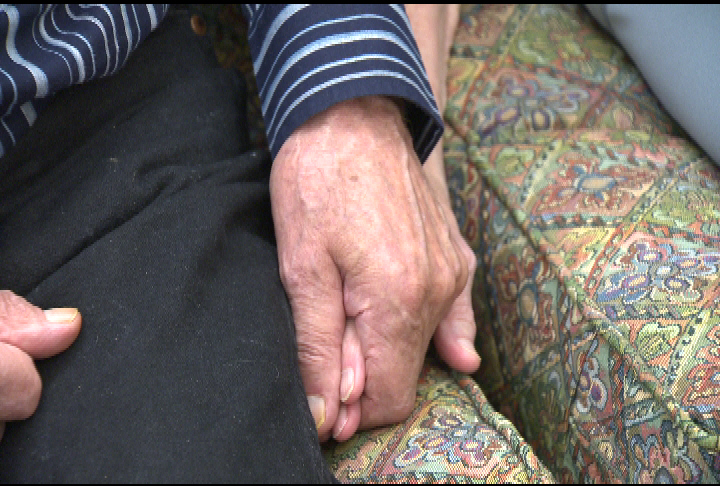There may soon be some relief for Alberta families who have not been able to visit loved ones living in continuing care centres.

Visitor restrictions were placed at the facilities early on in the COVID-19 pandemic, with visitors only being allowed to see a resident if he or she is a designated essential visitor helping with quality of care, if it is up to two weeks before a resident is expected to pass away and if it is an outdoor visit with a resident who is not in isolation.
READ MORE: Alberta adjusts visitor rule for continuing care facilities to balance ‘quality of life’
On Tuesday, Chief Medical Officer of Health Dr. Deena Hinshaw said that Alberta Health is looking at feedback it received from last week’s telephone town halls with operators, families and residents and an updated visitor policy is anticipated in the next few weeks.
“We are…trying to do our best to pull together again those two tensions,” Hinshaw said.
“Needing to make sure those particular high-risk settings and people who live in them are protected from COVID-19 outbreaks and the possibility of severe outcomes and, at the same time making sure the people living in those settings are not experiencing the devastating impact of isolation.”
A list of the questions at the telephone town hall, a copy of which was obtained by Global News, included:
- To what extent do you support or oppose the number of designated essential visitors per person increasing from one to two, knowing the additional risks this could bring?
- To what extent do you support or oppose visitors having enhanced expectations in order to support increasing the number of visitors permitted in facilities?
- To what extent do you agree or disagree that restrictions to visitors should change depending on the number of COVID-19 cases in the community where the facility is located?
The last few months have been difficult for Cindy Talbot, who lives in Calgary and whose grandmother and father are both living in continuing care centres in Edmonton.
Her grandmother Janet is 99 years old and will be turning 100 on July 7, a day Talbot would like to celebrate with her.

“We were hoping to take her out and we got a definitive no,” she said.
“I’m terrified and panicked I’m never going to be able to hold my grandmother’s hand again. One hundred is a pretty special birthday. I’m hoping we can get through this as a family.”
Talbot said she has not seen her grandmother since the pandemic broke, saying attempts to book visits at the facility have been unsuccessful. She said her grandmother has not been coping well.
“She’s terrified. She’s crying. She keeps repeating she doesn’t know how much longer she can hold on,” Talbot said.
“It’s horrifying to see my grandmother on video and not be able to do anything about it.”
Her father Ian is 74 and living with dementia; Talbot said his capacity to understand things has dropped without interaction from his family.

“He’s become more delusional. He was seeing things. He was slipping into that state where he thought we were visiting him when we actually weren’t visiting him,” she said.
Hinshaw said, on June 25, that 77 per cent of COVID-19 related deaths in the province have been in continuing care settings.
“There’s a lot of appropriate attention on the risk-benefit for that group,” said Dr. Lynora Saxsinger, an infectious disease specialist at the University of Alberta.
“That group is a tremendous risk, like the fail elderly are at huge risk of severe disease and death actually with this infection. But at the same time there is a clear quality of life issue if they’re kept apart from their support people, their loved ones.”
Saxsinger said she doesn’t think things should be opened up too broadly, too quickly but said the visit policy needs to be looked at carefully.
“There is more to life than surviving and I think it should be possible to find a way to make it as safe as possible,” she said.
Talbot said she understands the restrictions and why they were put in place and would like to see some reprieve sooner rather than later.
“It’s over three months in. What are we doing now to fix this because now people have died alone?” she said.
Talbot said she is willing to do whatever it takes to see her loved ones again.
“These are precious moments with our loved ones that are not going to be here, you know, for forever. We’re running out of town with them. I feel like I’m running out of time with my 99-year-old grandmother for sure.”




Comments